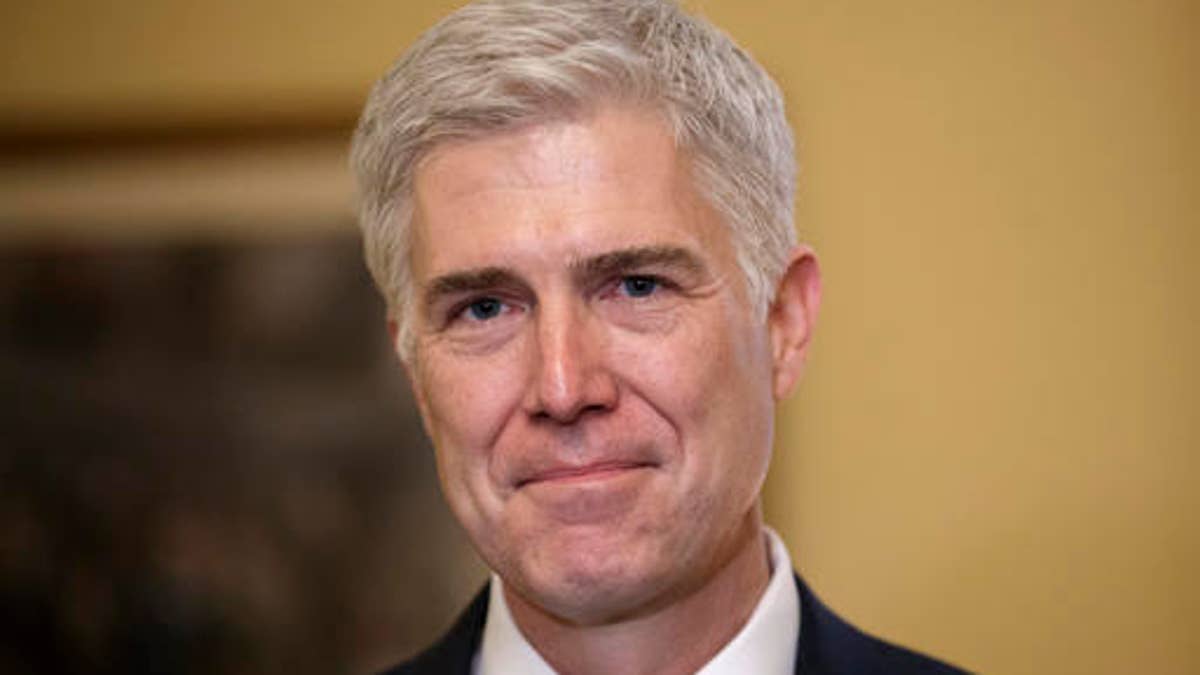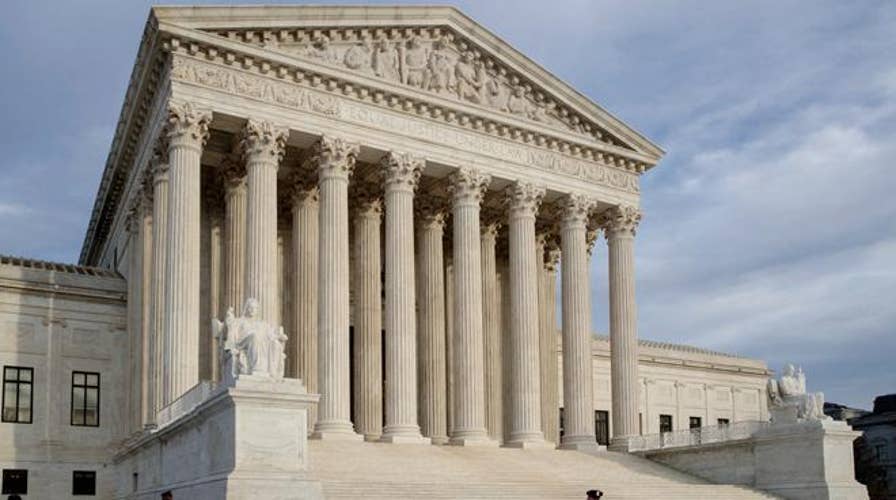Supreme Court hears case of Mexican teen slain across border
Strategy Room: Former federal prosecutor Doug Burns weighs on the case being heard by the top court
The Supreme Court on Tuesday heard oral arguments in the first case to come before the justices since President Trump took office and one that could prove to be a bellwether for how the nation’s highest court will rule under the new administration.
The case – Hernandez v. Mesa – centers on the 2010 cross-border shooting of a Mexican teenager by a U.S. Border Patrol agent and the legal battle by the teen’s parents to sue the border agent in an American court for allegedly violating their son's right.
Besides what was argued in the courtroom on Tuesday, legal scholars say that this case could also be precedent-setting and a preview of how the Supreme Court will approach politically-charged issues like Trump’s ban on foreign travelers from seven Muslim-majority nations and his other executive orders on immigration.
“This case may prove to be very significant for the administration’s immigration policies,” Jonathan Turley, a professor of public interest law at The George Washington University Law School, told Fox News.“
On a June evening in 2010, Border Patrol Agent Jesus Mesa Jr. shot and killed 15-year-old Sergio Adrian Hernández Guereca, who was playing with friends in a cement culvert that separates El Paso, Texas, and Ciudad Juárez, Mexico.
Hernández’s family argues that their son and his friends were simply playing a game in which they ran down the culvert from the Mexican side and up the American side to touch an 18-foot fence. Mesa and the Justice Department, however, argue that the agent was trying to stop "smugglers attempting an illegal border crossing" and fired his gun after he came under a barrage of rocks.
What actually happened during the incident, however, is not what the Supreme Court will be looking at as U.S. officials chose not to prosecute Mesa, and the Obama administration refused a request to extradite him so he could face criminal charges in Mexico.
Instead the justices must decide whether to uphold the ruling of two lower federal courts that Hernández was killed by Mesa without any possible legal recourse for his parents or that the border agent can be sued for damages for violating the boy's constitutional rights.
During a spirited 70-minute public session at the high court Tuesday, the eight justices appeared divided over just what kind of violations committed by the U.S. government against foreigners deserve legal action and whether courts should even get involved.
"This is one of the most sensitive areas of foreign affairs where the political branches should discuss with Mexico what the solution ought to be," Justice Anthony Kennedy said. "This an urgent matter of separation of powers for us to respect the duty that the principle rule the executive and the legislative have with respect to foreign affairs."
Whether or not constitutional protections under the Fourth Amendment apply to the Mexican teen is a variation on one of the central issues in the legal battle over Trump’s travel ban. A Feb. 9 ruling by a federal appeals court in California held that the ban violates the constitutional rights of people who aren’t in the country but have a connection to the U.S., such as a visa or a relationship with a U.S. resident.
A key precedent in both cases was set in 2008 when the Supreme Court held that inmates at the U.S. naval base at Guantanamo Bay, Cuba, have constitutional rights and can seek release in a federal court. Justice Kennedy wrote the 5-4 majority opinion in the case of Boumediene v. Bush that the global reach of the U.S. Constitution was governed by functional considerations and not formal questions about sovereign borders.
Legal experts say that Hernandez v. Mesa could clear up a number of issues left vague under the 2008 ruling and, in turn, give more clarity to how the Supreme Court will handle Trump’s travel ban.
“The Kennedy decision in 2008 left a lot of questions,” Turley said. “The question now is will the court expand on the decision and where will it draw the line?”
Besides setting up a legal precedent that could foreshadow how the court will handle the president’s more controversial orders, the case will also be the first indication of how the justices plan to proceed during the Trump administration.
While Trump has been openly critical of federal courts – especially following the appeals court ruling in February – most observers say that the Supreme Court will use Hernandez v. Mesa to show continuity, rather than change, from one administration to the next and to assert its independence from the other branches of government.
“The Supreme Court could begin to view itself as a counterweight to the political situation,” Stephen Griffin, a professor of constitutional law at Tulane University, told Fox News. “They’ll want to show that they aren’t a product of politics.”

Supreme Court Justice nominee, Neil Gorsuch meets with Senate Majority Leader Mitch McConnell of Ky. on Capitol Hill in Washington, Wednesday, Feb. 1, 2017. (The Associated Press)
Adding to the intrigue of the case is the empty seat left following the death Justice Antonin Scalia and Trump’s decision to nominate federal appellate judge Neil Gorsuch to fill the position and how he would rule in cases related to immigration.
“The Gorsuch hearings are a moment for everyone to slow down and decide what the role of the court is,” Griffin said. “Trump’s immigration ban has raised new issues that didn’t exist when Scalia was alive.”
A ruling in Hernandez v. Mesa is expected by June. Gorsuch is not participating in this petition.





